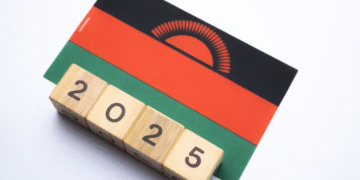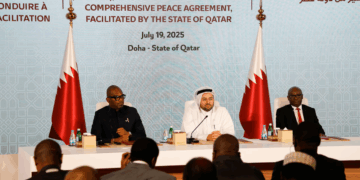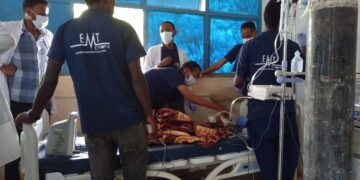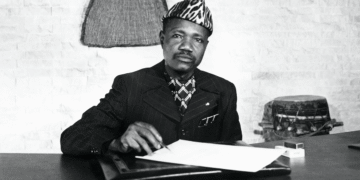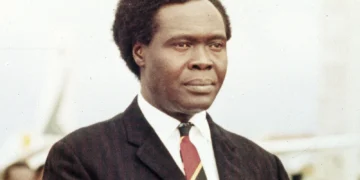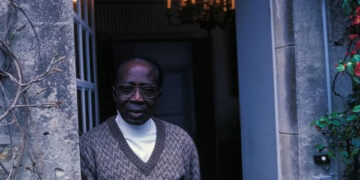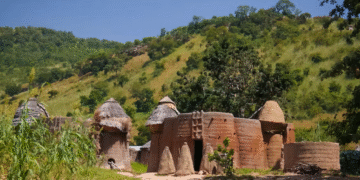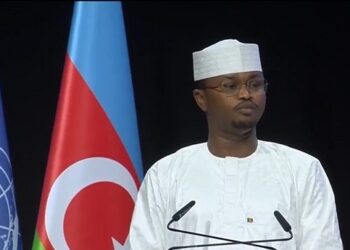Francine Nkoubangui Ntoumi is a prominent figure in African scientific research. She is a molecular biologist from the Republic of Congo. Her contribution focuses primarily on the study of tropical infectious diseases, particularly malaria, in an African context, with a focus on building local scientific capacity on the continent. Her career, which began with postgraduate studies in Europe and then returned to consolidate scientific research in her home country, reflects a dual commitment: excellence in her academic field and the development of scientific infrastructure on the African continent.
Francine Ntoumi was born in 1961 in Brazzaville, Republic of Congo. After graduating from high school in Brazzaville, she pursued higher education at Marien Ngouabi University. She then received a scholarship to continue her studies in Europe, where she studied at Pierre and Marie Curie University (Paris VI University) in France and at the University of Bonn in Germany. In 1992, she earned a PhD in molecular biology from Pierre and Marie Curie University.
After completing her PhD, Ntumi engaged in postdoctoral research at the Pasteur Institute in Paris, where she specialized in parasitic diseases. Her early research focused on understanding the mechanisms of resistance to malaria, a disease that represents a serious public health threat in Africa. This specialization was based on her deep understanding of the health challenges facing her continent.
In 1996, Ntumi returned to the Congo, where she worked as a research professor at Marien Ngouabi University. Her return was an important step, as she aimed to apply the expertise she had gained in Europe to a local setting and train a new generation of African scientists.
Francine Ntumi’s research focuses on infectious diseases, specifically the host-parasite relationship and drug resistance mechanisms. Malaria is the primary focus of her work, where she studies the genetic diversity of Plasmodium parasites that cause malaria and their resistance to the drugs used to treat it. Her research has provided important data on the prevalence of malaria and the influence of genetic factors on its incidence, helping to design more effective control strategies.
In addition to malaria, Ntumi has expanded her research to include other infectious diseases that pose a threat in Africa, such as the Ebola virus. During the Ebola outbreak in West Africa, Ntumi participated in response and research efforts, offering her expertise in virology and epidemiology.
In the context of the COVID-19 pandemic, Ntumi played a role in coordinating research related to the epidemic in the Congo and Africa more broadly. She was a member of international research teams that studied the spread of the virus, its impact on African communities, and possible response mechanisms.
Scientific Capacity Building: African Clinical Research Organization
Francine Ntumi’s work was not limited to scientific research in laboratories. She understood that scientific development in Africa required more than individual research. In 2004, she founded the Clinical African Research Institute (CAID), a non-governmental organization that aims to promote scientific research on the continent.
The organization’s mission is to build a network of African researchers, provide training for the next generation of scientists, and facilitate collaboration between African and international research institutions. Through this organization, Ntumi has contributed to the training of numerous graduate students and helped establish research programs in various African countries. She believed that African scientific independence could not be achieved without investing in human capital.
Francine Ntumi has received international recognition for her scientific contributions and efforts in building research capacity. She has held key positions in international organizations, such as Executive Secretary of the African Malaria Initiative. She is also a member of several scientific academies, including the African Academy of Sciences.
In 2015, she was awarded the L’Oréal-UNESCO For Women in Science Award for her contributions to malaria research. The award recognized her scientific career and contributions to public health.
Francine Ntumi’s career is a model of an African scientist working to solve her community’s problems through scientific research. Her legacy extends beyond her research papers, but also to the generation of young scientists she trained and the research institutions she helped build.
Quotes:
“The dynamism of research is assessed by indicators such as publications and patents. With regard to biomedical research, which is my field, the African continent bears the heaviest burden of disease in the world, but it is also the continent that invests the least in research, development and innovation.”
“I started studying in France, where I passed my medical exam and my state doctorate. When I returned to Africa,I wanted to specialize in a field of research that is important to my compatriots. Malaria kills thousands of people in Africa every year. I want not only to fight this disease.”
“I created the country’s first molecular biology laboratory at the University of Brazzaville, the capital of Congo. If this project worked, it was only thanks to the support of my colleagues in Tübingen.”
“In the Republic of Congo, there is no research culture yet. In Germany, it is a given that students also give their opinions and that discussions result. In Congo, the importance of exchanging ideas has not yet been grasped. However, in research, what counts are new ideas, and discussions are necessary.”













